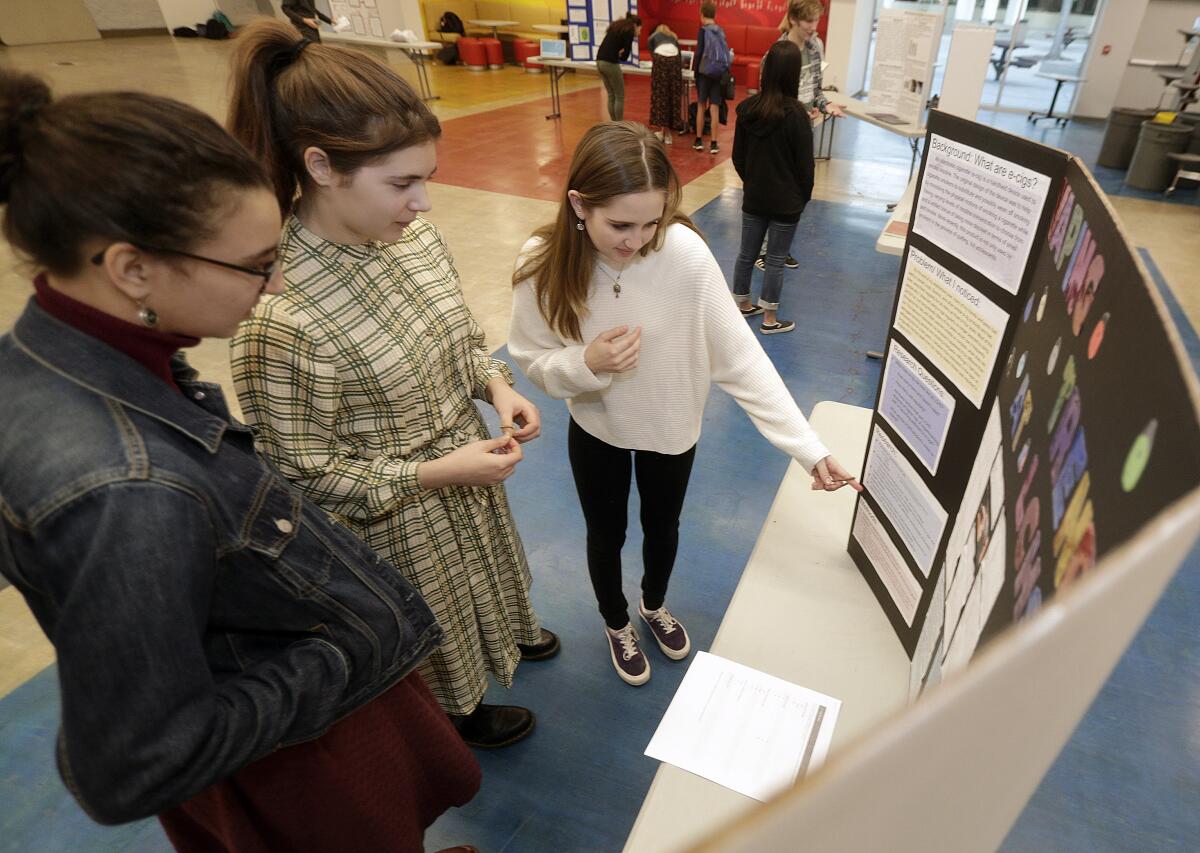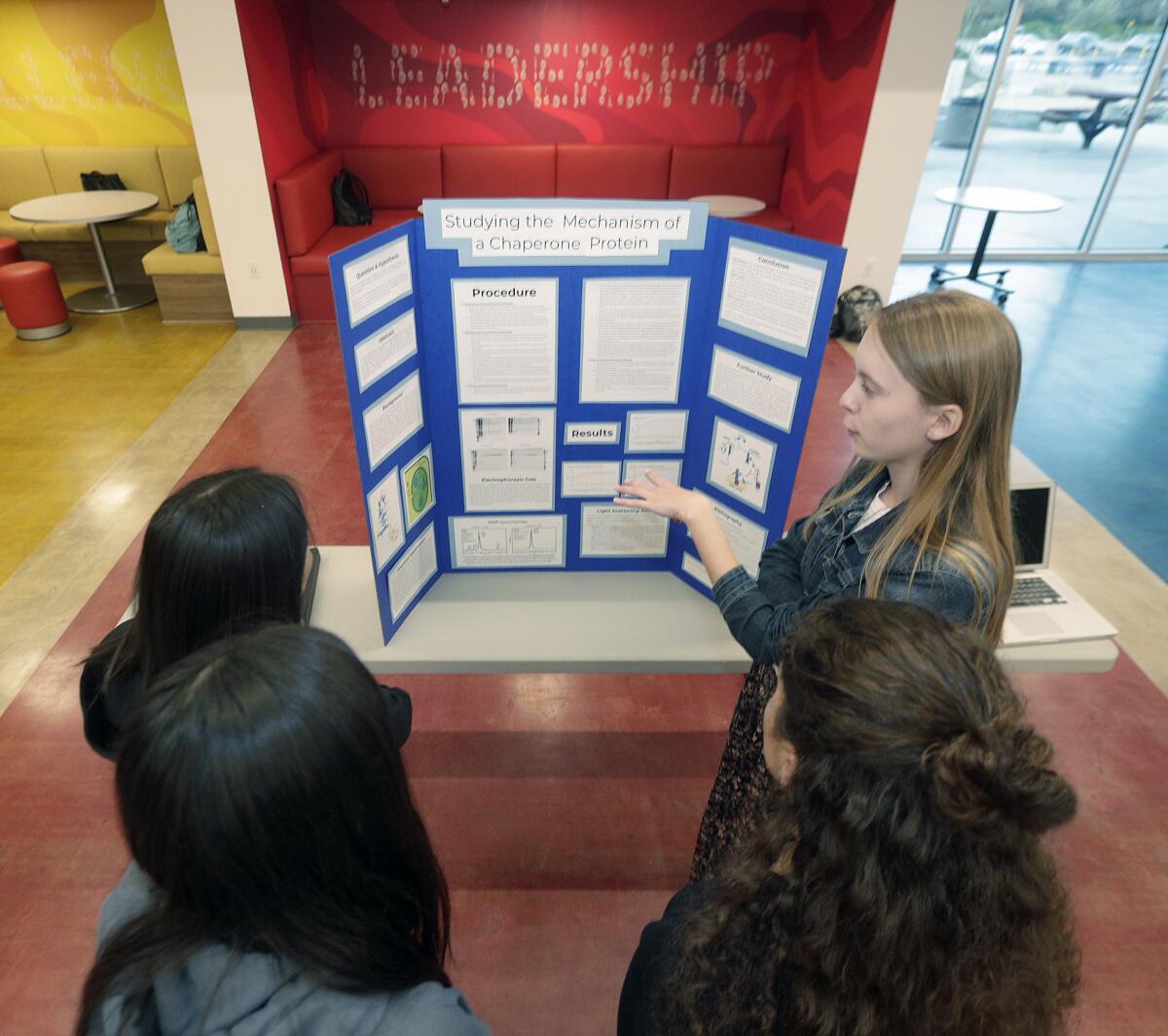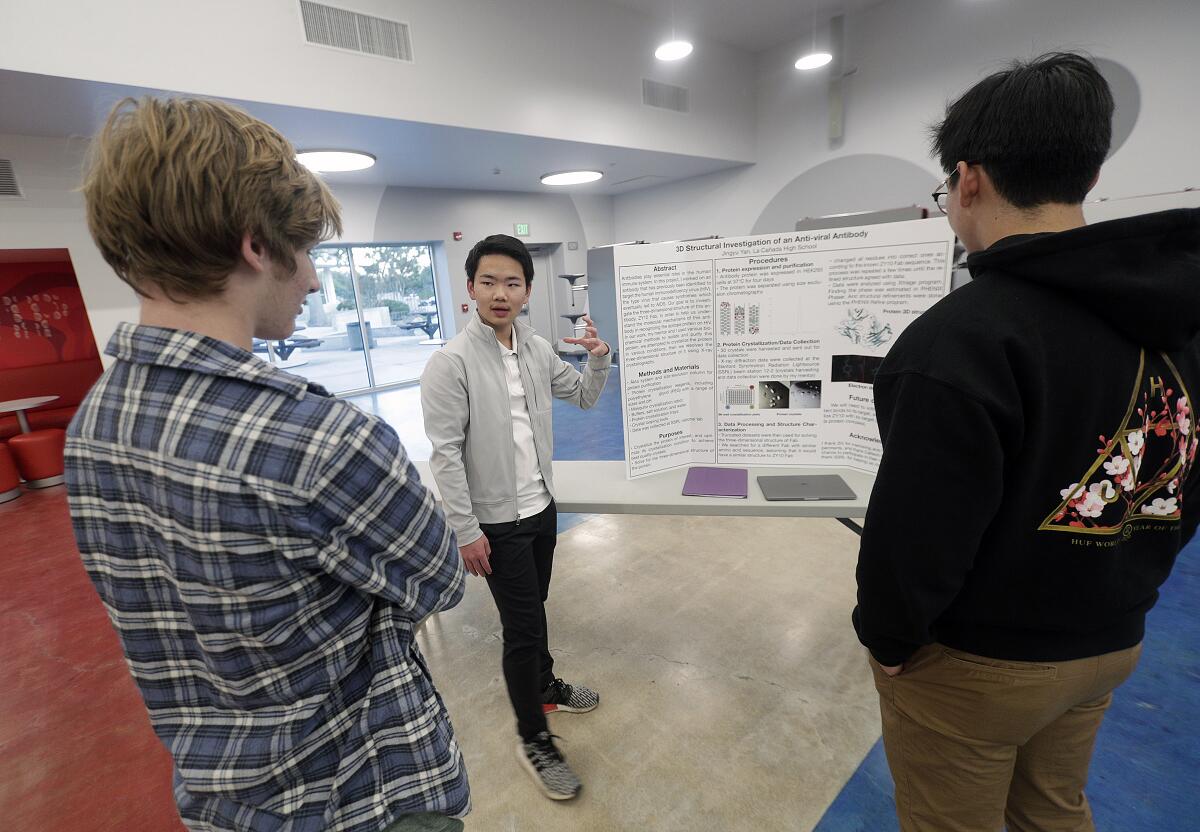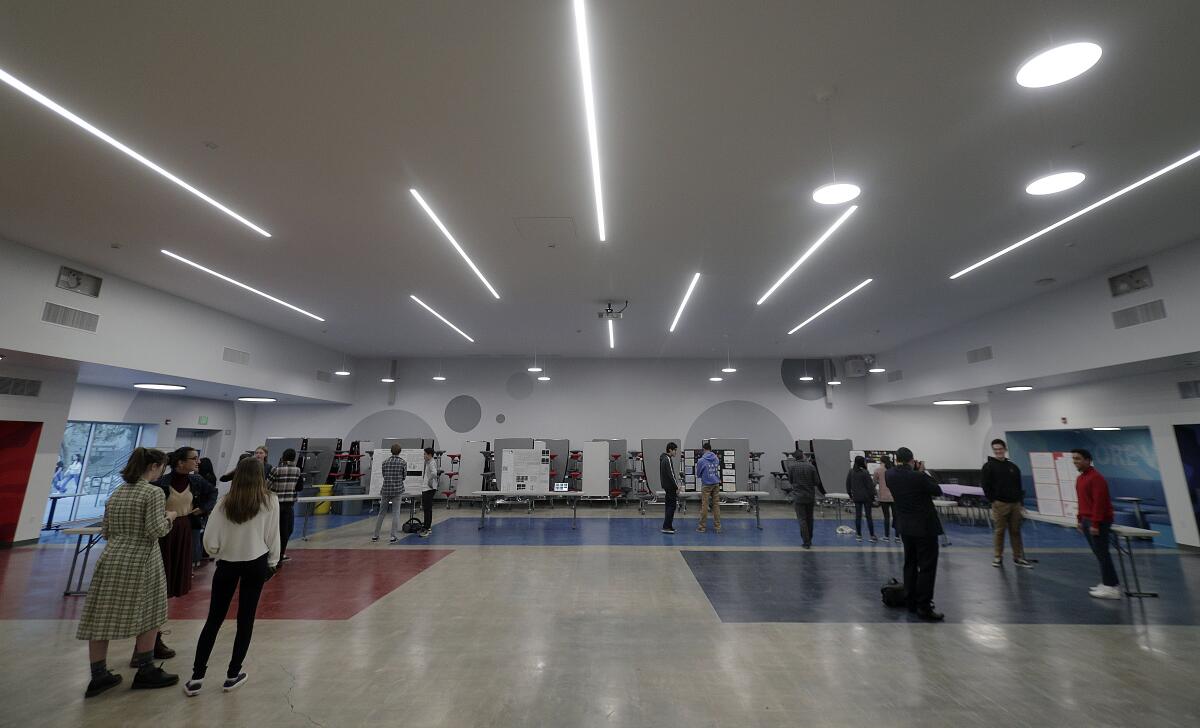La Cañada High School science fair winners move on to county contest

La Cañada High School students celebrated the spirit of inquiry last Friday in a science fair that featured intriguing findings on teen vaping, the psychological effects of social media use and the promising role of proteins in disease prevention.
The extracurricular event drew eight teams of teen scientists to the campus cafeteria, where they explained their work to fellow students and a panel of judges. Entries were graded on originality and purpose, background research, data collection and students’ ability to communicate.
“We want to know how knowledgeable they are of the subject,” said La Cañada Unified School District science coordinator Amy Nespor, who organized the fair and served as a judge. “We’re also looking at their research and background information and how well they understand their graphs.”

Some projects dovetailed on work students are doing through internships and volunteer stints at nearby Caltech.
LCHS juniors Jordon Lay and Artis Phillips, for example, explained their attempt to better understand chaperone proteins — which help light-harvesting chlorophyll proteins (LHCP) enter plant cells to convert sunlight into energy — and how they might aid in the prevention or treatment of cystic fibrosis and Parkinson’s disease.
Nearby, junior Carolyn Gordon explained how she studied vaping among La Cañada High 9-12 students through a survey that asked 609 respondents about their use, perceived addiction and lifestyle factors.

Gordon found about 29% of students reported having used e-cigarettes, while 10% reported regular use. Among habitual users, 10% described themselves as addicted. Teens whose parents were divorced were nearly twice as likely to experiment with the devices, her research showed.
Gordon plans to continue her work.
“I’m recoding data to further analyze responses and will be following up with focus groups,” she said.
Sophomore science partners and athletes Aditya Sehgal and Timmy Park explored whether listening to music while training improves athletic performance.

They found music may aid concentration and rhythmic activities, such as jumping rope, but seemed to have less impact during non-repetitive activities.
“Our bodies naturally want to flow to some rhythm, so if we give it a rhythm through music, it will be able to push more of its resources into doing things,” Park said.
When the judging was finished, LCHS junior Sudi Feng won first place for a project that focused on a herpes simplex 1 viral protein that may play a role in the development of Alzheimer’s disease.
Lay and Phillips won second place for their work with plant proteins, while Gordon’s research on teen vaping earned her a third-place prize.
The winners will represent La Cañada High School in the 70th annual Los Angeles County Secondary Science and Engineering Fair, March 19 and 20 at Magic Box L.A. For more, visit lascifair.org.
